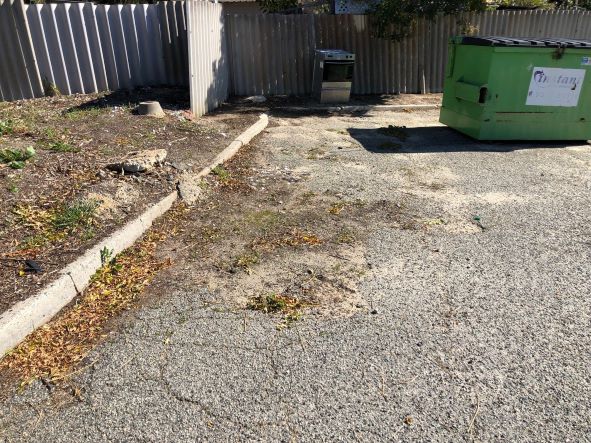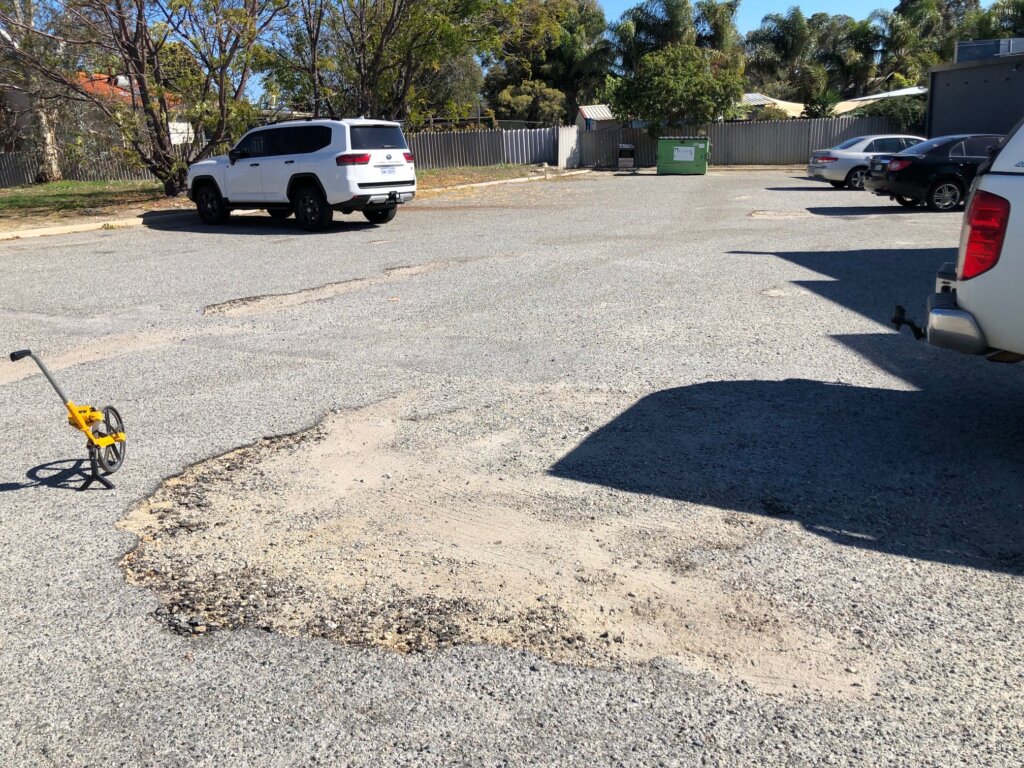Asphalt Cracking in Perth
Whilst asphalt is one of the most widely used building materials used for infrastructure within Australia and beyond, it is still susceptible to a number of factors which can erode, decay or wear down the robust surface. Despite asphalt driveways and surfaces in Perth generally being between 25-50mm thick and lasting more than 20 years (almost twice the thickness and longevity of bitumen seals), asphalt cracking and other damage can still result from a variety of causes.
It pays to understand the main causes of asphalt damage so you can get the most out of your asphalt driveway, car park, or commercial & heavy duty area, with minimal risk to those forces outside of your control.
What is Asphalt Cracking?
Asphalt cracking is a constant threat to all infrastructure surfaces. If left untreated it can lead to instability and failure, or in worse cases, the need for complete asphalt resurfacing or replacement. Whilst wear and tear is a common culprit for asphalt cracking and damage, vegetation ingress like weeds and roots often contribute to cracking from underneath the surface itself.
Trevor from NK Asphalt suggests regular maintenance as a great way to stay on top of this. He went on to explain, “Whilst asphalt has a fantastic shelf life, cracks can occur, and if spotted, early response is key to avoiding further damage and/or resurfacing.”
The 6 Main Causes Of Asphalt Cracking
1. Water Damage
A simple walk through Western Australia’s Karijini National Park will make you realise the power of water – one of the most erosive elements on the planet. Whilst asphalt is a reliable surface built to withstand Perth winters, excessive water can lead to differing forms of asphalt damage. This can occur if the surface is uneven or subsided, where pools of water may build up. Ensuring a sloping/even surface is key in preventing the potential risk of water damaging your asphalt driveway or car park.
Potholes are also a common occurrence from water damage or from the surface reaching the end of its lifespan. When moisture or groundwater enters through cracks, or is formed underneath paved surfaces, it can penetrate through the surface to form potholes which can create a major hazard. This occurs when the water is forced up (hydraulicing) by traffic, leading to water logging of the underlying base material, subsequent movement, and failure in the surface at that location.

DAMAGED ASPHALT BEFORE BEING RESURFACED BY NK ASPHALT.
2. Trees and Shrubs
As mentioned earlier, vegetation can lead to damage of any pavement type from wandering roots and weeds underneath the surface. Whilst this risk is always apparent, there are ways to limit the risk of significant damage by ensuring you don’t plant trees or shrubs within close vicinity of your asphalt driveway, concrete driveway, paved or asphalt surface. Trees, in particular, have the ability to stretch out their roots across a sizeable area, which can result in cracks from thick roots which are difficult to manage.
For large residential or commercial asphalt driveways in semi-rural areas, this is an especially crucial step to consider as these areas can have more trees and bushland, the roots of which can affect your driveway.
Trevor from NK advises that you consider this when planning your landscaping: “We have seen many cases of tree roots leading to damage, so it’s best to steer clear of invasive roots when planting sizeable plants, shrubs or trees anywhere near driveways. You’d be surprised at how far tree roots can travel.”
3. Fuel and Oil
Asphalt damage can occur from hydrocarbon materials leaking or spilling onto the surface, with petrol, diesel and oil from common driveway use being common examples. It is inevitable that this will occur to some extent on asphalt driveways, roads and especially public car parks. However, the key is managing any spills with early response before the substance penetrates into and softening the asphalt. Petrol spills can often be left to harden again, whereas diesel and other oils may need replacement.
4. Poor Asphalt Installation
Whilst asphalt is one of the most cost-effective surfaces on the market, there is a risk of poor installations leading to premature wear and tear, and eventual asphalt damage. Throughout the years, the NK team have seen an array of low-quality installations (at times DIY installations) which have eventuated in issues for clients. As a result, the NK Asphalt team aspire to consistently deliver the highest quality installations, as we understand the need for longevity and value, without having to constantly resurface and repair.
5. Weather and Asphalt Cracking
The Western Australian climate is a contrast of cold, wet winters and hot, dry summers, contributing to a high range of temperatures and conditions which test the durability of surfaces. Asphalt cracking can be caused by changes in conditions, such as heat which can cause base materials with higher clay contents (e.g. some gravel) to dry in summer and crack, whilst winters can introduce moisture and instability above and below surfaces, which can lead to further damage. In semi-rural areas, this can be especially true, with more intense temperature swings and high temperatures. The secret to staying ahead of the curve here is to install a quality asphalt product and underlying base material that is built to stand the test of time.
6. General Wear and Tear
We have covered a series of ways in which asphalt damage can occur, however, perhaps the most common example is simple wear and tear by traffic, aging and the weather. Large residential driveways, car parks and commercial & heavy duty areas, are surfaces built for vehicles of all shapes and sizes and designed to withstand the pressure of regular traffic and changing weather conditions. However, there is still a shelf life on the material itself.
Heavy vehicles can often speed up the wear and tear of asphalt surfaces and time itself is a gradual cause of disintegration, erosion and the wearing down of the asphalt material. Luckily, this can be reduced by the maintenance, upkeep and treatment of your surfaces.
Perth’s Experienced Asphalt Contractors
When it comes to getting the most out of your asphalt surface, there are a number of ways to keep ahead of the curve. Whilst constant maintenance of your asphalt driveway is always a great way to go, it should all start with a quality installation and product that you know and trust to deliver value over time, provided by a company with a long standing, reliable reputation.
Our NK Asphalt team pride ourselves on ensuring our customers are given the very best quality upfront, to reduce the risk of the aforementioned causes of asphalt cracking and other damages. It pays to trust the professionals, so if you are looking to resurface a large residential or commercial asphalt driveway, car park or commercial & heavy duty asphalt area, get in touch with our team to request a quote or some friendly advice today.
Get a Perth asphalt resurfacing quote
If your job is 150m2 or more and in the Perth or surrounding areas.
share


